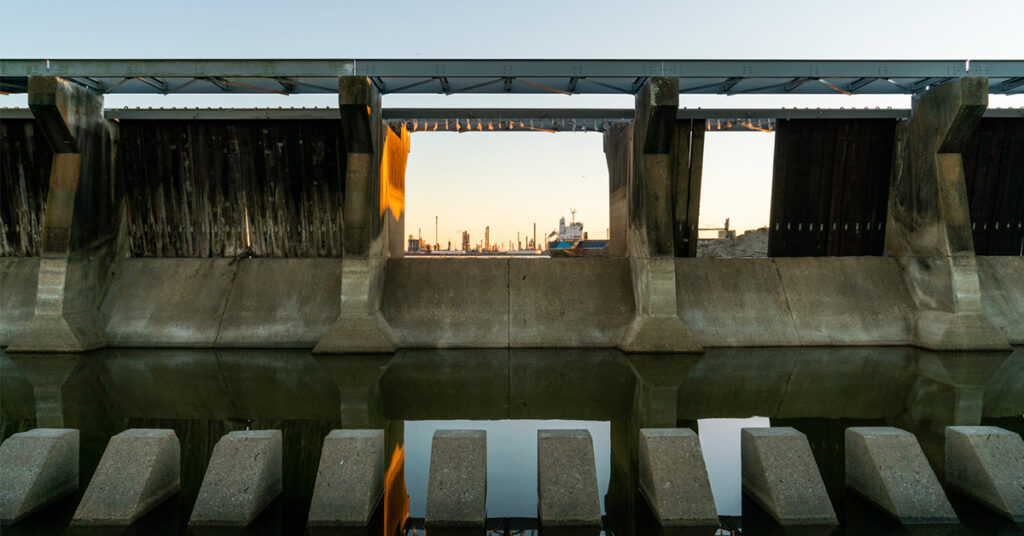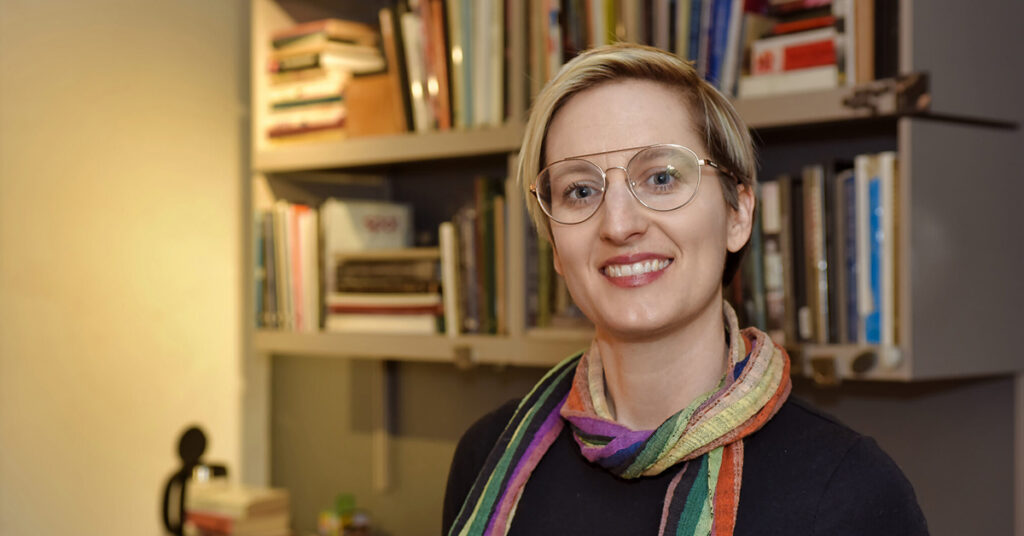Professor wins $35K grant for photo project
Leah Dyjak will explore the impact of climate change in Louisiana
Three years ago, Professor of Visual Art Leah Dyjak began capturing photos that showed the failure of infrastructure to mitigate the impacts of climate change—particularly in Southern Louisiana, the area surrounding New Orleans.
After a few pauses in the project—in part due to the COVID-19 pandemic—Dyjak is getting a significant boost to continue the photography compilation, thanks to a prestigious three-year $35,000 unrestricted grant from the George A. and Eliza Gardner Howard Foundation.
The foundation, administered at Brown University, awards a limited number of fellowships each year for independent projects in selected fields. Grants are awarded to professionals in the field of photography every five years.
Dyjak’s project, titled “As we play God,” explores the failure of risk reduction infrastructure, such as levees, to prevent environmental devastation caused by climate change. The work also explores the economic and spiritual cost of catastrophes such as levee breaches and flooding in communities in Louisiana.
“Part of what I started to look at before COVID-19 was the way that the levee system was built—both in the past and more recently. Many oil refineries are built on old plantations, so there’s a very clear delineation about who’s inside the ring, and who’s outside the ring. Essentially, if you’re outside of the ring, it means that your home, business or community, within the next five to 10 years, is in extreme danger, if not right now,” the professor said. “I am interested in the psychology of how these policies get implemented, who decides around how this water infrastructure was built, and whose interests are really being protected?”

The Howard Foundation grant will allow Dyjak to travel to Louisiana to conduct research from both a sociological and environmental perspective.
“In order to really uncover nuances of this region as an outsider, like historical complexity, it takes a lot of time to be there. Louisiana also is a place where there is a lot of oral history and storytelling within the Indigenous culture that has been passed down for generations by locals who have lived their whole lives there. And, so, the only way to really get to the essence of this research is to just be there and build relationships,” Dyjak said.
The professor hopes to continue with another plan halted due to the pandemic: taking aerial photography of big levee projects in Louisiana with a nonprofit called SouthWings. The organization coordinates a fleet of volunteer pilots who take scientists, artists and environmentalists on flights that provide an aerial perspective for research purposes.
Dyjak’s long-term wish is to showcase the photography as a large-scale, immersive exhibit at a museum or gallery, as well as in a book with more details on research findings.
The professor said winning the grant is incredibly validating.
“It’s a great feeling that my work is really taking off. It has really helped me transcend the limits of what I thought was possible. I think it is really important in terms of my teaching and how I’m able to support students in thinking big,” said Dyjak, who hopes that students will be inspired to see that anything is possible if you work hard and stay committed.

